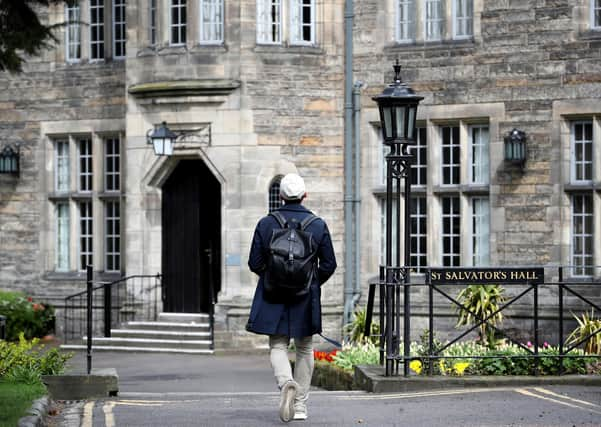UK universities should justify ‘societal worth’ through rankings system


Written by senior representatives of King’s College London, the University of Chicago and the University of Melbourne, the report says universities’ societal impact is not being adequately assessed and they propose a new framework to measure and rank “a wider contribution” which would “spur” universities to ensure more of their activities benefit local communities and wider society.
It suggests a framework with eight “indicators of engagement” with students, staff, communities and business as well as grading universities’ procurement spending with a social benefit, on their carbon footprint, and on their “research reach”, beyond academic journals.
Advertisement
Hide AdAdvertisement
Hide AdThe idea of promoting universities’ contributions to society was welcomed yesterday by Universities Scotland, the representative body of Scotland’s 19 higher education institutions, though it raised doubts about the collation of another league table.
Director, Alastair Sim said: “We’d agree with the premise of this report that more needs to be done to show the many different and very positive roles that universities have in their community, and the benefit they bring to people’s lives, reaching far beyond those who will ever work or study at a university.
“The coronavirus pandemic has shown just how integral universities are to the health and wellbeing of Scotland. Universities accelerated the graduation of hundreds of nurses, doctors and paramedics to reinforce staff on the frontline of the NHS and have been a key part of the testing initiative, research into a vaccine and have supported many elements of patient care.
“We know that most people think of undergraduate education when they think of universities but universities do so much more; they are deeply engaged with their communities in good times and in bad; the contribution they make reaches across health, culture, arts, sport, regeneration and support for small businesses.”
He added: “There should be as much emphasis on the local as the international role of universities. Another league table isn’t the place we’d start when it comes to getting this message across more effectively but we’ll read the report and its ideas with interest.”
One of the authors, Professor Jonathan Grant, vice president and vice principal (service) at King’s College London, said universities across the world were seeking support from governments and taxpayers to mitigate the impacts of Covid-19, and as a result “there is a real need for the higher education sector to better demonstrate the myriad benefits it brings to society.
“A new system that recognises these benefits would reassure the public and students that they are getting value for money, as well as incentivising institutions to do more for communities and societies around the world.”
Comments
Want to join the conversation? Please or to comment on this article.